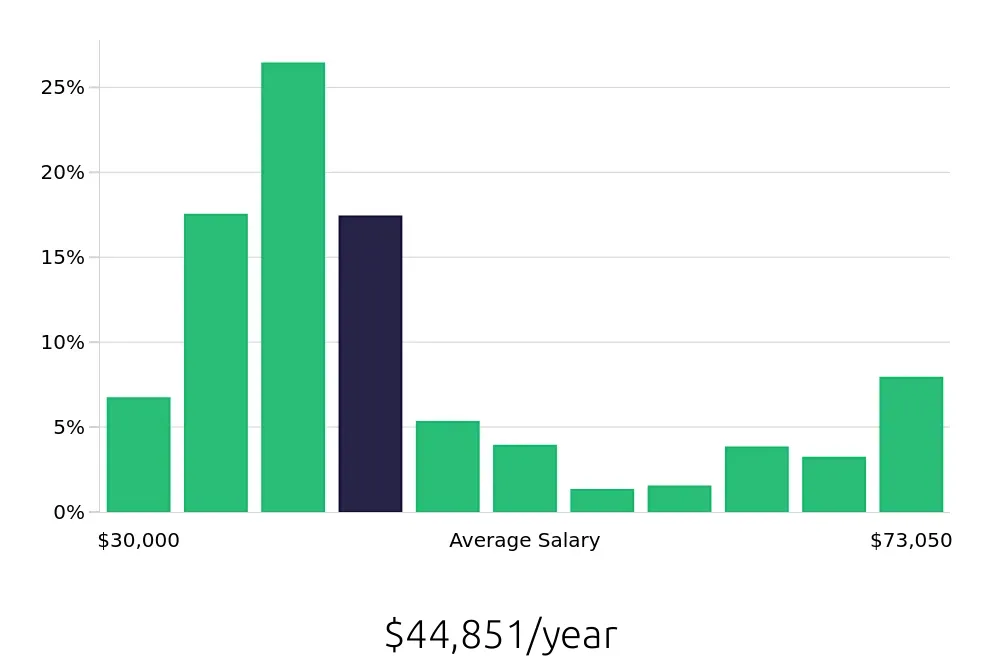Position
Overview
A Paint Prepper plays a crucial role in the automotive industry. This professional prepares vehicles for painting. They start by removing any old paint and rust. This may involve sanding or using chemicals. The Paint Prepper ensures the surface is clean and smooth. This step is key to achieving a high-quality paint job. The Prepper also applies primer to the surface. This primer helps the new paint stick better.
Attention to detail is vital for a Paint Prepper. They must inspect the surface for any imperfections. They must also make sure that all areas are prepared correctly. The Prepper uses various tools and techniques to achieve the perfect surface. This includes masks and tapes to protect areas that should not be painted. Working carefully ensures that the final product looks professional. The Paint Prepper’s job makes the painting process easier and more effective. This leads to a better-looking vehicle.
Becoming a Paint Prepper is an exciting career path in the automotive industry. This role involves preparing vehicles for painting, ensuring a smooth and high-quality finish. By mastering specific skills, one can excel in this field and enjoy job stability and growth opportunities.
The journey to becoming a Paint Prepper involves understanding and following key steps that will help you gain the necessary expertise and succeed in the job market.
Painting prep is a key step in auto body repair. A Paint Prepper makes sure the car’s surface is ready for painting. This job needs attention to detail and skill. Knowing how long it takes to learn these skills can help you plan your career.
First, someone interested in becoming a Paint Prepper should get a high school diploma or GED. Then, they should attend a trade school or community college. These schools offer courses in auto body repair. A typical program lasts from six months to two years. During this time, students learn about different materials, tools, and techniques. They practice removing old paint, sanding surfaces, and fixing dents or holes. After completing the program, they should gain hands-on experience. This can come from an apprenticeship or entry-level job in a body shop. Most people need at least one to two years of experience to become skilled. With more experience, they can move up to higher-paying jobs.
The Paint Prepper is responsible for preparing surfaces prior to the application of paint. This role ensures that the surface is clean, free of contaminants, and properly treated to achieve the best possible paint finish.
Responsibilities:
Qualifications
A Paint Prepper plays a crucial role in the automotive industry. This professional prepares vehicles for painting. They remove old paint, repair dents, and sand surfaces. A Paint Prepper works closely with auto body technicians and painters. They ensure vehicles look new and smooth. This job requires attention to detail and steady hands. Companies often hire Paint Preppers for car dealerships, body shops, and factories.
Being a Paint Prepper has its benefits and challenges. Consider these pros and cons before pursuing this career.
Job seekers interested in becoming a Paint Prepper can look forward to a stable job market. According to the Bureau of Labor Statistics (BLS), there are an average of 16,700 positions available each year. This trend shows a small increase of 0.5% in job openings from 2022 to 2032. The demand for skilled Paint Preppers remains steady, offering ample opportunities for those entering this field.
The compensation for Paint Preppers is competitive, with an average annual salary of $48,200. Hourly wages also reflect this with an average of $23.17 per hour. These figures indicate that Paint Preppers can expect a fair return for their skills and effort. The steady job outlook and decent pay make this a viable career choice for many job seekers.
With the combination of a stable job market and good compensation, Paint Prepper positions stand out as a solid career option. Job seekers with an interest in this field can anticipate a positive future, supported by the data from the BLS. The projected growth and consistent job availability make it a promising field to consider.
